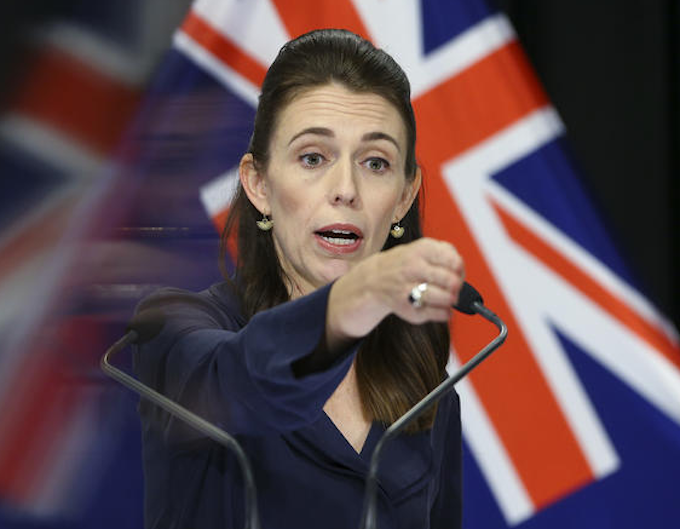Auckland will move to alert level 3 from 11.59pm on Tuesday night, and stay in level 3 for at least two weeks, Prime Minister Jacinda Ardern has announced.
The rest of New Zealand will remain in level 2, but will move from gatherings of 50 up to gatherings of 100.
Meanwhile, part of northern Waikato has been issued a section 70 order, requiring people who live or work there to stay at home.
“We are not stepping out of level 4 because the job is done, but nor are we moving because we don’t think we can achieve the goal of stamping out covid-19 – we are moving because level 3 still provides a cautious approach while we continue to stamp out covid-19,” Ardern said.
“It means staying in your bubble, it means contactless transactions and keeping your distance. It means we say thank you to Auckland for their tireless work, and we collectively keep going.”
Twenty two new cases were reported today, the majority of them household or known contacts. Five were unlinked, and three of those were within one family, and there was a tentative link for that family, Ardern said.
Three of the new cases are in Whakatīwai near Kaiaua in the Firth of Thames, northern Waikato, but are being counted in the Auckland total.
300 swabs
Ardern said testing so far had included household contacts, corrections staff, police staff, court staff, and 300 swabs had already been taken in the small community.
“We do want to make sure we are keeping the community safe,” she said.
Watch the PM’s live announcement here
Director of General of Health Dr Ashley Bloomfield said he was issuing a section 70 order requiring people who live or work in the area around Mangatangi, in northern Waikato, to stay at home. Ardern said it was effectively a “bespoke level 4”.
Dr Bloomfield said the order was for people living in an area north of SH2 centred on Mangatangi.
“That will effectively extend the road boundary to the east of Maramarua … and also to the southeast of Miranda on the Firth of Thames.”
Ardern said level 4 had been tough but it had also made a difference.
Almost all cases of the last 14 days had either been household or known contacts, and wastewater testing suggested there was no significant undetected transmission.
No widespread clusters
There had not been widespread clusters around workplaces, and of the cases where a link had been established, none had resulted from people accessing essential services.
Protections were still in place in level 3, she said.
“That remains critical and we ask everyone to play their part… we’re moving now because the advice we have is we don’t have widespread transmission across Auckland, if everyone continues to play their part we can stamp it out,” she said.
Dr Bloomfield said the ministry was confident there was not widespread undetected transmission. The difference with level 3 this time was it came with high and increasing levels of vaccination, he said.
Ardern reminded people that in level 3 they could make minor changes to bubbles such as bringing in an elderly relative who was not part of another bubble, but should not visit friends or break bubbles.
“Once in a household everyone is at risk of getting delta, so if you break your bubble, know that the consequence may be spreading covid back into your house to your loved ones,” Ardern said.
Masks mandatory at high schools
Schools in level 3 would be largely closed. Cabinet had made the decision to make masks mandatory at high schools at alert level 3, Ardern said.
People attending an essential service must also wear a mask, and people were encouraged to do so whenever they leave their home.
People over 65 in Auckland should stay home until they had been vaccinated, she said.
“We have been doing direct outreach to all our over-65s who haven’t had their first dose yet in Auckland. That amounts to about 23,000 people.
“Last week a letter was sent to those over-65s who we had details for. Today we’re commencing an outbound call campaign… these will average about 8000 calls a day.”
People with a booking in the future could bring it forward, she said, adding pharmacies were offering delivery services, as were supermarkets.
People travelling over the boundary for personal reasons were now being required to carry evidence of having taken a test within the last seven days.
Exemptions were available through the Ministry of Health.
This article is republished under a community partnership agreement with RNZ.
Article by AsiaPacificReport.nz









